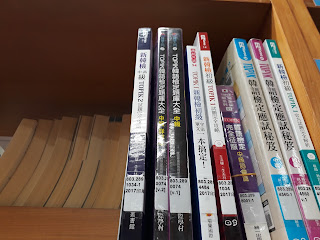Half of World's People Can't get Basic Health Services: WHO
VOA News
December 13, 2017 1:44 PM (source)
Half of World's People Can't get Basic Health Services: WHO
世界衛生組織:全球一半人口無法獲得基本醫療衛生服務
December 13, 2017 1:44 PM
Reuters
At least half the world's population is unable to access essential health services and many others are forced into extreme poverty by having to pay for healthcare they cannot afford, the World Health Organization said on Wednesday.
Some 800 million people worldwide spend at least 10 percent of their household income on healthcare for themselves or a sick child, and as many as 100 million of those are left with less than .90 a day to live on as a result, the WHO said.
In a joint report with the World Bank, the United Nations health agency said it was unacceptable that more than half the world's people still don't get the most basic healthcare.
"If we are serious - not just about better health outcomes but also about ending poverty - we must urgently scale up our efforts on universal health coverage," World Bank President Jim Yong Kim said in a statement with the report.
Anna Marriott, health policy advisor for the international aid agency Oxfam, said the report was a "damning indictment" of governments' efforts on health.
"Healthcare, a basic human right, has become a luxury only the wealthy can afford," she said in a statement.
"Behind each of these appalling statistics are people facing unimaginable suffering - parents reduced to watching their children die; children pulled out of school so they can help pay off their families' health care debts; and women working themselves into the ground caring for sick family members."
The WHO and World Bank report did have some positive news: This century has seen a rise in the number of people getting services such as vaccinations, HIV/AIDS drugs, and mosquito-repelling bednets and contraception, it said.
But there are wide gaps in the availability of services in sub-Saharan Africa and southern Asia, the report found. In other regions, basic services such as family planning and child immunization are more available, but families are suffering financially to pay for them.
Yong Kim said this was a sign that "the system is broken".
"We need a fundamental shift in the way we mobilize resources for health and human capital, especially at the country level," he said.
世界衛生組織(World Health Organization,WHO)於週三(編按:2017 年 12 月 13 日)表示,全球至少一半的人口無法獲得基本醫療衛生服務;許多人更為了支付無法負擔(afford)的醫療保健費用而陷入赤貧(extreme poverty)。
世界衛生組織指出,全球大約有 8 億人花費至少 10 % 的家庭收入(household income)在自身或患病孩童的醫療服務上;其中多達 1 億人其一天的生活費因此低於 1.9 美元。
世界衛生組織在這份與世界銀行(World Bank)聯合發表的報告裡表明,全球超過一半的人至今仍無法獲得最基本的醫療衛生照護,這樣的狀況令人無法接受(unacceptable)。
針對這份報告,世界銀行行長金墉(Jim Yong Kim)發表聲明:「如果我們不只要盡力改善健康狀況,還要終結貧窮,那我們必須急切地更加(scale up)努力以推動全民健康納保(universal health coverage)。」
國際救援組織樂施會(Oxfam)的健康政策顧問安娜.馬里奧特(Anna Marriott)表示,這份報告針對各國政府在醫療保健的努力不足,提出「嚴厲的(damning)譴責(indictment)」。
她在聲明中指出:「醫療保健是基本人權,現在卻淪為有錢人才負擔得起的奢侈品(luxury)。」
馬里奧特說道:「報告中這些駭人的(appalling)統計數據背後,很多人正承受難以想像的痛苦(unimaginable suffering)──父母被迫(reduce . . . to . . .)眼睜睜看著孩子死去;孩童被迫輟學,以便幫忙還清(pay off)家人的醫療債務(debt);女性為了照顧(care for)生病的家人而疲於奔命(work . . . into the ground)。」
不過這份報告還是有好消息。報告指出,本世紀(編按:21 世紀)能取得基本醫療衛生服務的人數大幅增加,可獲得的資源包括接種疫苗(vaccination)、取得抗愛滋病(human immunodeficiency virus infection and acquired immune deficiency syndrome,HIV/AIDS)藥物與驅蚊(mosquito-repelling)的睡簾(編按:即蚊帳,為了預防瘧疾),以及了解避孕方法(contraception)等等。
然而,報告也發現有地區性的差異。撒哈拉沙漠以南的非洲(sub-Saharan Africa)及南亞等地區,人們要獲得基本醫療衛生服務很不容易。而在其他地區,家庭計劃、幼兒免疫接種(immunization)等基本醫療衛生服務較容易取得;不過許多家庭為了支付這些基本醫療服務,也飽受財務負擔的折磨。
金墉提到,這些事實顯示「現有的體系已行不通」。
他強調:「如何運用(mobilize)對健康資本(health capital)及人力資本(human capital)有益的資源,我們必須徹底(fundamental)改變原本的做法,尤其要從國家層面著手。」
(編按:金墉先提到「投資健康,更廣地來說投資每個人,對發展人力資本與實現永續、具包容性的經濟成長來說至關重要。」接著才有本文最後兩段的引文。再來,金墉表示世界衛生組織「目前正從多方面著手,協助各國將經費越來越有效地運用在人民身上,進一步加快全民健康納保的進程。」此段話的原文可參考世界衛生組織新聞稿第4段:http://www.who.int/mediacentre/news/releases/2017/half-lacks-access/en/)
Language Notes
afford [ə`ford] (v) 買得起,負擔得起
unacceptable [͵ʌnək`sɛptəbḷ] (a) 不能接受的
* 本字由表示否定的字首 "un-" 和形容詞 "acceptable"「可接受的」組合而成
scale something up/scale up something (v phr) 增加. . . . . .;增大. . . . . .
indictment [ɪn`daɪtmənt] (n) 控訴;譴責
* 注意本字第 2 音節中的 "c" 不發音
* indict [ɪn`daɪt] (v) 控告,告發;起訴
luxury [`lʌkʃərɪ] (n) 奢侈品;奢侈
appalling [ə`pɔlɪŋ] (a) 駭人的,令人震驚的
reduce someone to . . . (v phr) 使(某人)被逼無奈做. . . . . .;使(某人)不得不做. . . . . .
* 注意本動詞片語中的 "to" 為介系詞,後須接名詞或動名詞,亦常為被動形式,即 "someone be reduced to . . ."
work oneself/someone into the ground (v phr)(拼命工作)使(自己/某人)精疲力盡,把(自己/某人)累垮
vaccination [͵væksə`neʃən] (n) 疫苗接種
* vaccinate [`væksənet](v) 給. . . . . .接種疫苗
contraception [͵kɑntrə`sɛpʃən] (n) 避孕法
* contraceptive [͵kɑntrə`sɛptɪv] (n) 避孕用具;避孕藥
fundamental [͵fʌndə`mɛntḷ] (a) 基礎的,根本的
mobilize [`mobə͵laɪz](v) 動員;調動;組織
Check your vocabulary!
Fill in the blanks with a word or phrase from the list above. Make necessary changes. After you finish, highlight the blanks to reveal the hidden answers.
Speaking through an interpreter, the president said the terms of the ceasefire were completely unacceptable.
I like to buy myself little luxuries from time to time.
The school is based on the fundamental principle that all children should reach their full potential.
Representatives for all the main candidates are trying to mobilize voter support.
My company is scaling up its operations in Western Asia.
He was out of cigarettes and was reduced to smoking the butts left in the ashtrays.
編譯:汪冠岐
|

 Read more on VOA.
Read more on VOA.








